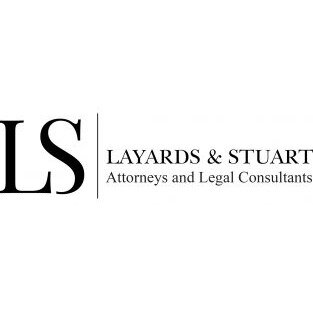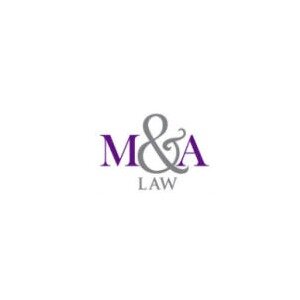Best Restructuring & Insolvency Lawyers in Sri Lanka
Share your needs with us, get contacted by law firms.
Free. Takes 2 min.
Or refine your search by selecting a city:
List of the best lawyers in Sri Lanka
About Restructuring & Insolvency Law in Sri Lanka
Restructuring and Insolvency law in Sri Lanka governs how businesses and individuals in financial distress can reorganize their debts or proceed with liquidation when they cannot meet their obligations. The primary goal is to balance the interests of debtors, creditors, shareholders, and other stakeholders, while supporting economic stability. Sri Lanka’s legal framework provides for both voluntary and compulsory insolvency processes, as well as methods for corporate restructuring, enabling businesses to recover or, if necessary, make an orderly exit from the market.
Why You May Need a Lawyer
There are several situations where seeking legal advice in restructuring and insolvency becomes essential. Common scenarios include:
- Your company is facing persistent cash-flow problems and risk of defaulting on payments.
- You have received statutory demands or court notices related to unpaid debts.
- A creditor is threatening to initiate winding-up or bankruptcy proceedings against you or your business.
- You are considering renegotiating terms with creditors, employees, or stakeholders.
- You wish to explore options such as voluntary arrangements, schemes of arrangement, or legal protection from creditor actions.
- You are a creditor seeking to recover debts from an insolvent individual or company.
- You want to understand the potential consequences and your rights in an insolvency situation.
A lawyer in this field guides you through complex legal requirements, helps you explore alternatives, safeguards your assets, and ensures your interests are represented in negotiations or court proceedings.
Local Laws Overview
The primary legislation governing restructuring and insolvency in Sri Lanka includes the Companies Act No. 7 of 2007 and the Insolvency Ordinance No. 24 of 1884, along with supporting regulations. Some of the key aspects are:
- Corporate Insolvency: The Companies Act provides for solvent and insolvent winding-up procedures. Winding-up can be voluntary (by decision of shareholders), or by order of the court upon petition by creditors, members, or other interested parties.
- Individual Insolvency: The Insolvency Ordinance sets out the procedures for declaring a person bankrupt and managing the distribution of their assets among creditors.
- Restructuring Processes: Companies facing financial hardship can explore arrangements or compromises with creditors. This may include schemes of arrangement, which must be approved by a court and a majority of creditors or members.
- Appointment of Insolvency Practitioners: Courts can appoint liquidators, receivers, or managers to take control of assets, investigate company affairs, and oversee fair distribution to creditors.
- Creditor Rights: Creditors have the right to file claims, attend creditors' meetings, vote on resolutions, and challenge improper conduct in insolvency proceedings.
- Priority of Payments: Sri Lanka law sets a hierarchy for payments, prioritizing secured creditors and certain employee entitlements before unsecured creditors.
It is important to note that the laws and court processes can be intricate, and new reforms or interpretations may affect your case. Professional guidance is highly recommended.
Frequently Asked Questions
What is the difference between restructuring and insolvency?
Restructuring refers to processes that help reorganize a company’s operations or finances to avoid insolvency and restore profitability. Insolvency is the legal state when an individual or company cannot pay debts when due, often leading to bankruptcy or liquidation proceedings.
Who can initiate insolvency proceedings in Sri Lanka?
Insolvency proceedings can be initiated by the debtor company or individual (voluntary), or by creditors, shareholders, or sometimes regulatory authorities (compulsory) through a court process.
Can a business continue operating during insolvency proceedings?
Depending on the situation and court orders, some businesses may continue to operate under supervision or during the course of restructuring, especially if it is believed a better outcome for creditors and stakeholders can be achieved.
What are the debtor's rights during insolvency?
Debtors retain the right to participate in court proceedings, propose restructuring plans, and appeal certain decisions. However, they may face restrictions on asset usage and management as directed by court-appointed insolvency practitioners.
How are creditors paid during liquidation?
Assets are sold and distributed according to a statutory order of priority, with secured creditors, statutory dues, and employee claims generally paid before unsecured creditors.
What is a scheme of arrangement?
A scheme of arrangement allows a company to reach a legal agreement with creditors or shareholders to restructure debts or company structure. This must receive approval from a majority of affected parties and the court.
How long does insolvency or liquidation take?
Timelines vary based on case complexity, asset size, number of creditors, and court schedules. Cases can take several months to years, especially if there are disputes or recoveries to be made.
Can an individual be declared bankrupt in Sri Lanka?
Yes, individuals unable to meet their debt obligations can be declared bankrupt under the Insolvency Ordinance, following legal procedures initiated by themselves or their creditors.
Do directors have personal liability during insolvency?
Company directors may be personally liable if found to have committed wrongful or fraudulent trading, breached fiduciary duties, or failed to act in creditors' interests during insolvency.
Can foreign creditors participate in insolvency proceedings in Sri Lanka?
Yes, foreign creditors can lodge their claims and participate, subject to Sri Lankan court procedures and recognition of their interests according to local laws.
Additional Resources
If you are seeking further information or assistance regarding restructuring and insolvency in Sri Lanka, the following resources can be valuable:
- Registrar of Companies - Handles company registrations, winding-up, and compliance matters.
- Insolvency and Bankruptcy Unit, Ministry of Justice - Provides policy oversight and information on insolvency frameworks.
- Sri Lanka Bar Association - Offers directories for qualified legal professionals specializing in insolvency law.
- Department of Labour - For employee-related claims in liquidations.
- Central Bank of Sri Lanka - Supervises insolvency proceedings involving financial institutions.
Next Steps
If you are facing financial difficulties, suspect potential insolvency, or have received legal notices related to debt recovery, consider the following steps:
- Collect all relevant documents, including loan agreements, account statements, legal notices, and company records.
- Schedule a consultation with a lawyer who specializes in restructuring and insolvency law for an assessment of your situation.
- Discuss both legal and informal options for addressing your financial difficulties, including negotiation, mediation, restructuring, and potential formal proceedings.
- Act promptly to protect your rights and increase the range of solutions available to you.
- Follow professional advice regarding communication with creditors, asset management, and compliance with court orders or legal requirements.
Early intervention and qualified legal support can help minimize financial losses, provide clarity on your options, and ensure the best possible outcome during challenging times.
Lawzana helps you find the best lawyers and law firms in Sri Lanka through a curated and pre-screened list of qualified legal professionals. Our platform offers rankings and detailed profiles of attorneys and law firms, allowing you to compare based on practice areas, including Restructuring & Insolvency, experience, and client feedback.
Each profile includes a description of the firm's areas of practice, client reviews, team members and partners, year of establishment, spoken languages, office locations, contact information, social media presence, and any published articles or resources. Most firms on our platform speak English and are experienced in both local and international legal matters.
Get a quote from top-rated law firms in Sri Lanka — quickly, securely, and without unnecessary hassle.
Disclaimer:
The information provided on this page is for general informational purposes only and does not constitute legal advice. While we strive to ensure the accuracy and relevance of the content, legal information may change over time, and interpretations of the law can vary. You should always consult with a qualified legal professional for advice specific to your situation.
We disclaim all liability for actions taken or not taken based on the content of this page. If you believe any information is incorrect or outdated, please contact us, and we will review and update it where appropriate.
Browse restructuring & insolvency law firms by city in Sri Lanka
Refine your search by selecting a city.

















